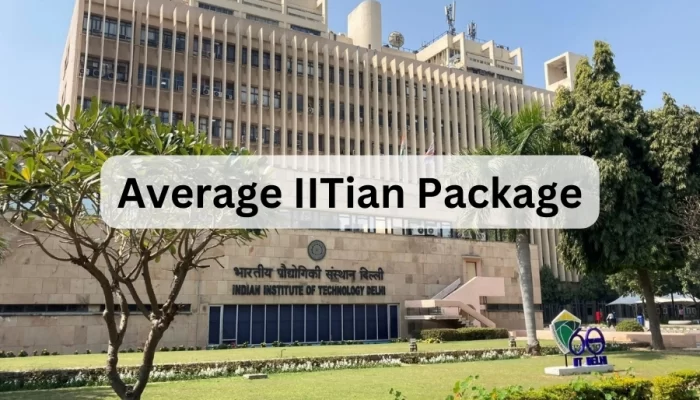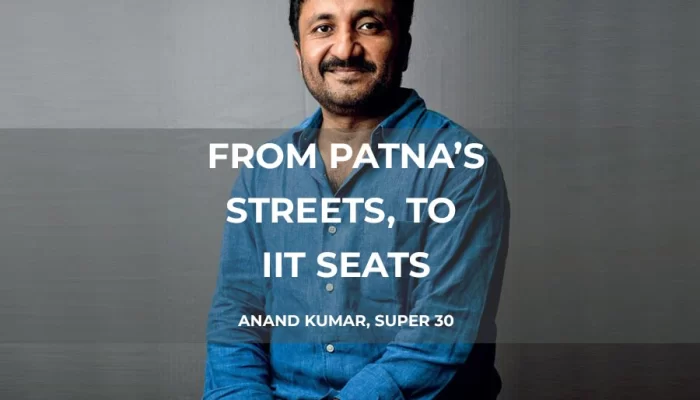Most of the students constrain their potential by simply studying in order to earn good marks and find a job. The true essence of education gets lost in the whole process,” shares Pranav Gupta Ashoka University Founder.

The primary problem with examination system in India is that it fosters students with cramming mindsets rather than questioning ones. Contrary to Western education systems, rote memorization continues to be prioritized above critical thinking. Over time, this has supplanted the original intent and goal of education by valuing marks above knowledge and reasoning.
“Our examination and evaluation system is exhaustive and can be considered as a failure. A student’s future is seen to be defined by their school-leaving examination. Hence, most of the students constrain their potential by simply studying in order to earn good marks and find a job. The true essence of education gets lost in the whole process,” shares Pranav Gupta Ashoka University Founder.
The examination system operates as a gatekeeper, preventing a large number of students from progressing further. The system is not contested as it has gained credibility over many decades. Its fundamental tenet is that students must conform to the same mould in order to score well on the large-scale board examinations to move onto higher education. The fact that every student is unique with diverse strengths and limitations as well as has various modes of thinking and reasoning is utterly overlooked.
Several eminent figures claim that India’s education system is deteriorating due to the major emphasis placed on marks rather than seeking originality and innovation. Most schools and colleges are focused on achieving high exam scores and percentages rather than developing effective human resources.
“The exam-machine system can have a wide range of negative implications for the younger generation. Although exam reformation ideas have long been urged in this nation, little appears to have changed. The New Education Policy, 2020 proposes modifications that would restructure the curriculum and framework for students in grades 10 and 12. The new approach shall attempt to simplify board examinations by assessing fundamental competencies of students and focusing on their holistic development. To ensure high-quality education, it is necessary to focus on transformation along with reformation,” asserts Pranav Gupta.
NEP-2020 consists of four years of interdisciplinary education that emphasizes on critical thinking, life goals, increased flexibility and choice. Additionally, the Indian government launched Pariksha Pe Charcha, which has been conducted annually since 2018. The Indian Prime Minister engages in conversation with parents, teachers and students from all around the nation at the event, share concerns and offers advice on how to handle stress when taking board and entrance examinations.
The goal of educational institutions should be to provide students the self-assurance they need to pursue their chosen fields of study and carve out a space for themselves. The examination system must switch from mark-based evaluation to IQ and EQ-based assessments, especially in the age of information science, creative thinking and innovations. Ashoka University evaluates students using a range of techniques in addition to marks. A student’s GPA is computed each semester on the basis of grades for all of his or her courses, including co-curricular courses which are given prime importance in their curriculum. Evaluation is crucial, but it should be done using a variety of instruments to determine the unique talents and strengths of each learner and Ashoka believes in it.
“Students are often clubbed together and subjected to a standardized course that results in a predetermined outcome. We need engaged students, a smaller academic load and an emphasis on practice-based learning. The only way to stop undermining students’ innate skills and start nurturing them is through quick, imaginative and creative assessment methods that are relevant and compassionate. In Ashoka University, we evaluate students based on projects, essays, online discussions, in-class articles, group discussions, oral presentations, quizzes, etc. We value experimental learning and realize that creativity and innovation cannot become casualties. We require better problem-solving abilities and incentives for actual research and for that to happen, current evaluation system needs to be overhauled,” highlights Pranav Gupta Ashoka University Founder.
Also read: Vineet Gupta Jamboree Founder : Demand for foreign education prospers despite the pandemic.









